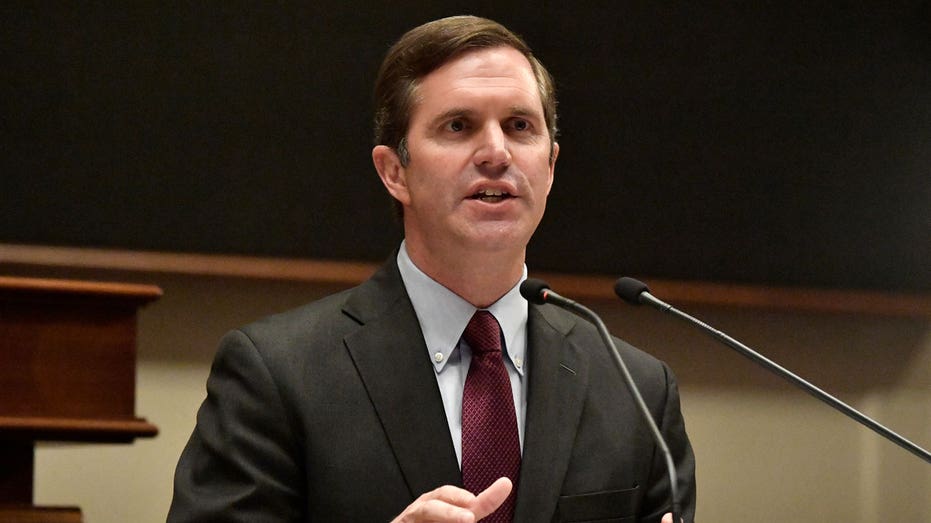Jake Sullivan Has a Dire Warning on What Happens if Ukraine Doesn’t Get Needed Aid
National Security Adviser Jake Sullivan on Monday expressed concern about the dire threats facing America and the world if Congress doesn’t pass needed Ukraine funding this week—going so far as to warn that a broader war may break out that could involve U.S. troops.During an event co-hosted by The DSR Network and The New Republic at the National Press Club in Washington, D.C., on Monday, Sullivan repeatedly expressed concern about what is happening in Ukraine, and what message America would be sending if it abandons the country amid the Russian invasion.“I do not think it’s hyperbole to say that basically the security of Europe is at stake, and therefore the risk of American men and women having to go deal with another massive war in Europe, as we have before, if we don’t work with Ukraine to stop Russia in Ukraine. That’s at stake,” Sullivan said.“Look, the arithmetic here is simple,” he continued. “We have now, as of the end of December, used up all of the funding that Congress has given us to supply weapons to Ukraine, and then to replenish our stocks with the weapons that we’ve handed over. And so if Congress does not come through, we will begin to enter a period in which we are unable to give Ukraine the air defense interceptors it needs to keep Russian missiles from crashing into Ukrainian cities. We will not be able to provide the ammunition necessary for them to continue advancing and hold the line against the Russian attacks, which have been intensive in the east over the course of the past few weeks. And as weeks go by, that will have a material effect on Ukraine’s battlefield position.”Sullivan asserted that most members of Congress—across party lines—do want to see additional funding for Ukraine. Republicans, however, are stuck on pairing that aid with changes to border and immigration policy.Ukrainian President Volodymyr Zelenskiy will visit Congress on Tuesday to make a last-ditch plea for an aid package before the holidays. That’s unfortunately looking increasingly unlikely, as there are only three days left in Congress this session.Beyond stark warnings about the future of European security, Sullivan also spoke about American values when it comes to Ukraine. “I believe the American people still want to see the United States standing for the basic proposition that a free people deserves to be free, and we should help them be able to achieve that,” he said. “And if we don’t, I really think it undermines the very idea of who we are as a country. And there isn’t really a greater stake than that.”He did not, however, raise these same values when discussing Israel’s actions in Gaza—which to this point have killed nearly 18,000 Palestinians, the overwhelming majority of them civilians. When asked whether Israel is taking out Hamas targets such that the war might end sometime soon, he lauded Israel’s progress in fighting Hamas and defended its ground operation to the south of the Gaza Strip as being effective in targeting Hamas leadership. “In Gaza City, they have managed to identify and begin to neutralize a truly expansive network of tunnels that form the backbone of the military capacity of Hamas in the north, and they’re working through ways in which they are going to render those tunnels ineffective going forward,” Sullivan said. “They have been able to take out senior brigade commanders, battalion commanders, company commanders, and a significant number of fighters and now in the south in Khan Yunis, that’s really the beating heart of the Hamas leadership that is located and has been located in that area. And so they’re equally in a ground operation trying to get after the infrastructure that has supported the command and control for Hamas writ large overall, and are looking to neutralize that as well.”“Ultimately, they’re going to continue to work at getting the most high value targets, the authors of the horrible massacre on October 7, including [Yahya] Sinwar, [Mohammed] Deif, and [Marwan] Issa, the top three Hamas leaders in Gaza. And they have not yet obviously gotten to them.”Sullivan made no mention of the rising death toll of Palestinians. When asked by The New Republic’s Michael Tomasky if he could foresee the United States attaching conditions to military assistance to Israel if the war continues to drag on, Sullivan demurred. “We will be talking to them and have been,” he said. “President Biden, most recently, with Prime Minister Netanyahu, about what their vision is for how long this goes on. But I think for now, those conversations are best left behind closed doors. And so I won’t yet entertain the hypothetical in your question.”On another matter, audience member Jon Wolfsthal, who was the senior director for arms control issues in the Obama administration, asked whether the administration was reviewing the fact that a president can bypass military leaders to order the launch of nuclear weapons. Wolfsthal didn’t mention Donald Trump but did invoke the idea that a “future president

National Security Adviser Jake Sullivan on Monday expressed concern about the dire threats facing America and the world if Congress doesn’t pass needed Ukraine funding this week—going so far as to warn that a broader war may break out that could involve U.S. troops.
During an event co-hosted by The DSR Network and The New Republic at the National Press Club in Washington, D.C., on Monday, Sullivan repeatedly expressed concern about what is happening in Ukraine, and what message America would be sending if it abandons the country amid the Russian invasion.
“I do not think it’s hyperbole to say that basically the security of Europe is at stake, and therefore the risk of American men and women having to go deal with another massive war in Europe, as we have before, if we don’t work with Ukraine to stop Russia in Ukraine. That’s at stake,” Sullivan said.
“Look, the arithmetic here is simple,” he continued. “We have now, as of the end of December, used up all of the funding that Congress has given us to supply weapons to Ukraine, and then to replenish our stocks with the weapons that we’ve handed over. And so if Congress does not come through, we will begin to enter a period in which we are unable to give Ukraine the air defense interceptors it needs to keep Russian missiles from crashing into Ukrainian cities. We will not be able to provide the ammunition necessary for them to continue advancing and hold the line against the Russian attacks, which have been intensive in the east over the course of the past few weeks. And as weeks go by, that will have a material effect on Ukraine’s battlefield position.”
Sullivan asserted that most members of Congress—across party lines—do want to see additional funding for Ukraine. Republicans, however, are stuck on pairing that aid with changes to border and immigration policy.
Ukrainian President Volodymyr Zelenskiy will visit Congress on Tuesday to make a last-ditch plea for an aid package before the holidays. That’s unfortunately looking increasingly unlikely, as there are only three days left in Congress this session.
Beyond stark warnings about the future of European security, Sullivan also spoke about American values when it comes to Ukraine. “I believe the American people still want to see the United States standing for the basic proposition that a free people deserves to be free, and we should help them be able to achieve that,” he said. “And if we don’t, I really think it undermines the very idea of who we are as a country. And there isn’t really a greater stake than that.”
He did not, however, raise these same values when discussing Israel’s actions in Gaza—which to this point have killed nearly 18,000 Palestinians, the overwhelming majority of them civilians. When asked whether Israel is taking out Hamas targets such that the war might end sometime soon, he lauded Israel’s progress in fighting Hamas and defended its ground operation to the south of the Gaza Strip as being effective in targeting Hamas leadership.
“In Gaza City, they have managed to identify and begin to neutralize a truly expansive network of tunnels that form the backbone of the military capacity of Hamas in the north, and they’re working through ways in which they are going to render those tunnels ineffective going forward,” Sullivan said. “They have been able to take out senior brigade commanders, battalion commanders, company commanders, and a significant number of fighters and now in the south in Khan Yunis, that’s really the beating heart of the Hamas leadership that is located and has been located in that area. And so they’re equally in a ground operation trying to get after the infrastructure that has supported the command and control for Hamas writ large overall, and are looking to neutralize that as well.”
“Ultimately, they’re going to continue to work at getting the most high value targets, the authors of the horrible massacre on October 7, including [Yahya] Sinwar, [Mohammed] Deif, and [Marwan] Issa, the top three Hamas leaders in Gaza. And they have not yet obviously gotten to them.”
Sullivan made no mention of the rising death toll of Palestinians. When asked by The New Republic’s Michael Tomasky if he could foresee the United States attaching conditions to military assistance to Israel if the war continues to drag on, Sullivan demurred. “We will be talking to them and have been,” he said. “President Biden, most recently, with Prime Minister Netanyahu, about what their vision is for how long this goes on. But I think for now, those conversations are best left behind closed doors. And so I won’t yet entertain the hypothetical in your question.”
On another matter, audience member Jon Wolfsthal, who was the senior director for arms control issues in the Obama administration, asked whether the administration was reviewing the fact that a president can bypass military leaders to order the launch of nuclear weapons. Wolfsthal didn’t mention Donald Trump but did invoke the idea that a “future president” could act unilaterally and asked if reviewing this was on the administration’s agenda.
“It is not right now on our agenda but now that you posed the question, it will be,” Sullivan replied. “I will go back tonight and say ‘Hey, what’s the deal with the question.’ I’m not unfamiliar with the issue generally, but it hasn’t sat at the core of the debates we’ve been having over the Nuclear Posture Review, or the employment guidance, or other critical documents. It’s a completely worthy question and one we should be taking a look at. This is one of those cases where you’re actually posing a question that’s going to generate a task.”



